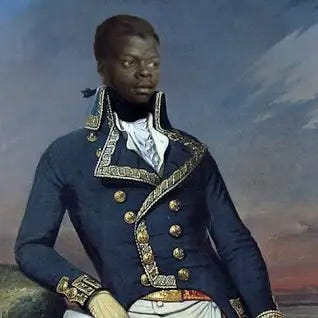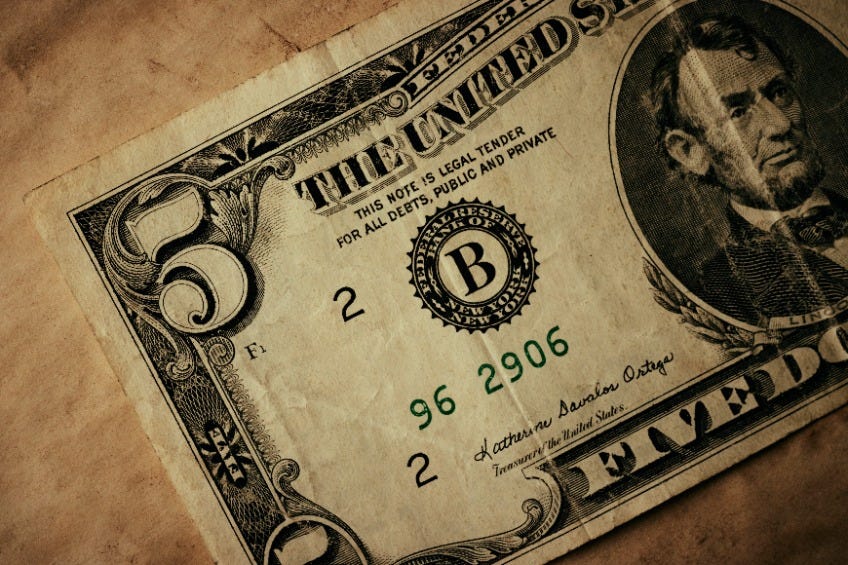Issue #493 Today In Black History, Thursday, February 8, 2024
Today’s Black History WOW!
Toussaint L'Overture was born into slavery in 1743 in Saint-Domingue, a French colony on the island of Hispaniola (now Haiti). He was a prominent figure in the Haitian Revolution, which began in 1791 and ultimately led to the establishment of Haiti as the first independent black republic in the world.
As a young man, Toussaint was able to gain his freedom and rose to become a leader among the free Black population in Saint-Domingue. Toussaint Louverture also expanded his own finances and owned several coffee plantations.
He was known for his intelligence, strategic thinking, and military skills. When the French Revolution erupted in 1789, Toussaint saw an opportunity for his people to fight for their freedom.
In 1791, the enslaved population of Saint-Domingue launched a massive rebellion against their white oppressors. Toussaint became known for his ability to mobilize and organize the rebel forces. Under his leadership, the rebellion grew in strength and intensity, leading to the abolition of slavery in 1793.
During the chaos of the revolution, Toussaint aligned himself with the French Republic and its ideals of liberty and equality. He entered into negotiations with French authorities, with the hope of securing freedom and rights for the Black population of Saint-Domingue.
Throughout his years in power, he worked to balance the economy and security of Saint-Domingue. Worried about the economy, which had stalled, he restored the plantation system using paid labor; negotiated trade agreements with Britain and the United States, and maintained a large and well-trained army.
In 1801, Toussaint drafted a constitution for the island that abolished slavery and declared himself governor-general for life. He sought to establish a society based on racial equality and economic stability. Toussaint's rule was marked by his efforts to improve education, infrastructure, and agriculture in Haiti.
However, in 1802, French forces, led by Napoleon Bonaparte, invaded Haiti with the intention of re-establishing slavery. Toussaint was captured and sent to France, where he died in prison in 1803.
Toussaint nonetheless inspired countless others in the fight against slavery and colonial oppression. His actions laid the foundation for the successful Haitian Revolution and the establishment of Haiti as an independent nation.
The Haitian Revolution continued under Louverture's lieutenant, Jean-Jacques Dessalines, who declared independence on 1 January 1804, thereby establishing the sovereign state of Haiti.
Toussaint L’Overture is now known as the "Father of Haiti”.
Today In Black History
- In 1861, the Confederate States of America was organized in Montgomery, Alabama.
- In 1865, Martin Robison Delany became the 1st Black major in the United States Army.
- In 1894, the U.S. Enforcement Act was repealed, making it easier to disenfranchise Blacks.
- In 1925, Marcus Garvey was sent to federal prison in Atlanta.
- In 1944, Harry S. McAlphin, a member of the National Negro Press Association, became the first African American accredited to attend White House press conferences.
- In 1964, U.S. Representative Martha Griffiths (D-MI) succeeded in adding civil rights protection for women to the 1964 Civil Rights Act.
The “Comments” feature has been disabled. Instead, let’s discuss these facts in our community on Substack Notes. You can also read other Substack publications without subscribing to them when you join Notes.
This post is free to read/listen to for three days after publication. To have 365 24/7 access to all our posts and podcast episodes and financially support “We Are Speaking” for no more than $5 per month, please subscribe at the paid level. You will receive a 7-day FREE trial!




